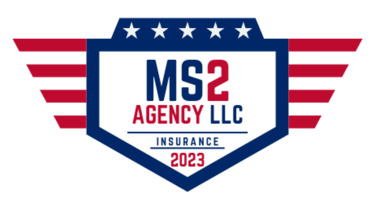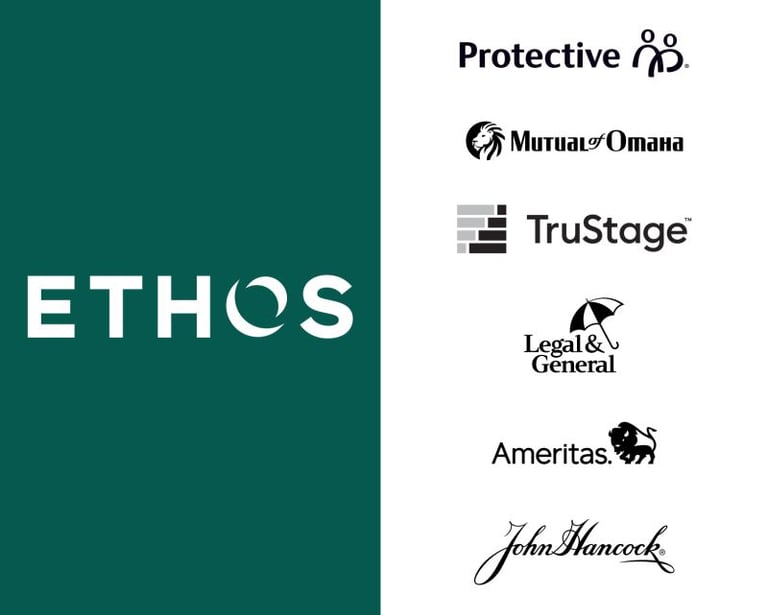NPN #20142358 MICHIGAN PRODUCER ID #1097370 AGENCY NPN #20969676 MICHIGAN AGENCY ID #0145888
Affiliate Disclaimer: Some links may be affiliate links, generating revenue for MS2 Agency LLC at no extra cost to you. See our Affiliate Disclosure Policy for details
Should Michigan Drivers Opt Out of Personal Injury Protection (PIP) Coverage? The Pros and Cons of Relying on Qualified Health Coverage
Michigan drivers with Qualified Health Coverage (QHC) can exclude Personal Injury Protection (PIP) from their auto insurance to save money. But is this a smart financial move? Explore the pros, cons, and long-term risks before making a decision
MICHIGAN AUTO INSURANCEPERSONAL INJURY PROTECTIONQUALIFIED HEALTH COVERAGEPIP OPT-OUTMICHIGAN CAR INSURANCE SAVINGS
Michael Scott
2/13/20255 min read
Saving Money on Auto Insurance Sounds Great—But at What Cost?
Michigan’s auto insurance reform, enacted in 2020, introduced new choices for drivers, including the option to exclude Personal Injury Protection (PIP) medical coverage if they have Qualified Health Coverage (QHC). While opting out can reduce insurance premiums, it also comes with potential risks that may outweigh short-term savings.
If you're a Michigan driver considering this option, it's essential to weigh the pros and cons carefully. Let’s break down what it means to exclude PIP and the potential long-term impact of this decision.
What Is Personal Injury Protection (PIP) and Qualified Health Coverage (QHC)?
PIP is a component of Michigan’s no-fault auto insurance system that covers medical expenses, rehabilitation, attendant care, and wage loss in the event of an auto accident—regardless of fault. It also includes long-term care benefits for catastrophic injuries, something standard health insurance often does not cover.
Drivers who have Qualified Health Coverage (QHC)—which means their health insurance covers auto-related injuries without exclusions and has an annual deductible of $6,000 or less—can choose to exclude PIP medical coverage from their auto policy.
The Pros of Opting Out of PIP with Qualified Health Coverage
1. Potential Cost Savings on Auto Insurance
One of the biggest advantages of opting out of PIP is lower auto insurance premiums. Michigan has historically had some of the highest auto insurance rates in the country, and reducing or eliminating PIP coverage can significantly cut costs.
2. Avoiding Duplicate Coverage
If your health insurance already covers auto accident injuries, paying for PIP medical coverage might feel redundant. Instead of paying for both PIP and health insurance, some drivers see opting out as a way to streamline coverage.
3. Employer-Sponsored Health Plans May Offer Strong Coverage
If you have a comprehensive employer-sponsored health insurance plan, especially one with low out-of-pocket costs, it may provide adequate protection in case of an accident. Many large employers offer robust benefits that meet the QHC requirements.
4. Medicaid and Medicare Allow Opt-Outs in Some Cases
If you have Medicare Parts A & B or Medicaid that meets QHC requirements, you may be able to opt out of PIP, reducing your insurance costs without sacrificing medical coverage.
The Risks and Long-Term Consequences of Opting Out of PIP
1. Health Insurance May Not Cover Everything
Even if you have QHC, not all health insurance plans cover the same benefits as PIP. Some crucial expenses PIP covers but health insurance often does not include:
Long-term rehabilitation and attendant care
Home modifications for disabilities (e.g., wheelchair ramps, home medical equipment)
Wage loss reimbursement if you're unable to work due to accident injuries
2. Higher Out-of-Pocket Costs
PIP typically covers 100% of medical expenses without co-pays or deductibles. Health insurance, on the other hand, often requires co-pays, deductibles, and coinsurance—meaning you could be left paying significant out-of-pocket costs if you're seriously injured.
For example, if your health insurance has a $5,000 deductible and 20% coinsurance, a serious accident requiring $100,000 in medical treatment could leave you paying over $25,000 out of pocket.
3. Losing Your Health Insurance Leaves You Unprotected
If you rely solely on health insurance and lose your coverage due to job loss, retirement, or switching providers, you could be left without any medical coverage for auto-related injuries. PIP, on the other hand, stays with you as long as you have an auto policy.
4. PIP Provides Lifetime Medical Coverage for Catastrophic Injuries
One of the most significant risks of opting out of PIP is losing lifetime medical coverage for severe injuries. Michigan’s Catastrophic Claims Association (MCCA) helps pay for long-term care when PIP benefits are exhausted. Without PIP, you may need to rely on personal savings, lawsuits, or Medicaid—which may not cover the same level of care.
5. Auto Accidents Can Result in Unexpected Costs
Even if you have great health insurance today, an auto accident can have financial consequences beyond medical bills, such as:
Lost wages if you're unable to work
Home and vehicle modifications for permanent disabilities
Long-term rehabilitation costs
The impact on dependents and caregivers
Who Should (and Shouldn’t) Opt Out of PIP?
Consider Opting Out If:
✔️ You have a comprehensive health insurance plan that explicitly covers auto accident injuries with minimal out-of-pocket costs
✔️ You can comfortably afford deductibles and co-pays in the event of a serious injury
✔️ You’re willing to accept the risks of losing lifetime catastrophic coverage
You May Want to Keep PIP If:
❌ Your health insurance has high deductibles or co-pays
❌ You don’t have a stable long-term health insurance plan
❌ You’re concerned about long-term disability, lost wages, or home health care needs
❌ You want peace of mind knowing you're fully covered regardless of future health insurance changes
Conclusion: Is Opting Out of PIP Worth It?
While opting out of PIP can save money upfront, the long-term financial risks can be substantial. Michigan drivers with strong, low-deductible health coverage may find it beneficial, but those without stable, comprehensive health plans could face unexpected medical and financial hardships if seriously injured.
Before making a decision, review your health insurance policy, consider potential out-of-pocket costs, and think about your future financial security. If you're unsure, consulting with a licensed insurance agent can help you navigate your options.
Sources:
Michigan Department of Insurance and Financial Services (DIFS) – www.michigan.gov/difs
Michigan No-Fault Auto Insurance Law – Legislative Analysis
Insurance Institute of Michigan – www.iiminfo.org
🚀 Get Your Customized Insurance Quote Today!📝
Fast ⚡ Easy ✅ Tailored to Your Business Needs 💼


💼 Business Loans & Credit Lines 💳
🚀 Fast, Flexible, & Easy ✅ Competitive Rates 💰

⭐ See Why We're 5-Star Rated on Google!
Trusted by Businesses Like Yours ✅
💼 Ready to Save on Business Insurance? 🚀 Get Your Instant Quote Now—Fast, Easy, and No Hassle! Protect Your Business, Control Your Costs! 🔍
🚀 Get Up to $2M in Life Insurance – No Exam! ✅
Ethos offers up to $2M in life insurance from top carriers in about 10 minutes, with a 95% approval rate and no medical exam*.
*Just a few health and lifestyle questions
💳 Seamless & Secure Card Processing with Deposyt! 🚀 Low Fees, Fast Transactions, Maximum Security! 🔒
🚗 Out of Factory Warranty? No Worries! 🛡️ Arkay Auto Warranty Covers Repairs, Saves You Money, & Keeps You on the Road Longer! 🔧💰 Get Protected!
MS2 Agency LLC
Built For Contractors & Michigan Families
Contact Us
Join our mailing list for Insurance education, offers, and savings tips
© 2025. MS2 Agency LLC All rights reserved
3846 Arlington Ave., Fort Gratiot, MI 48059








